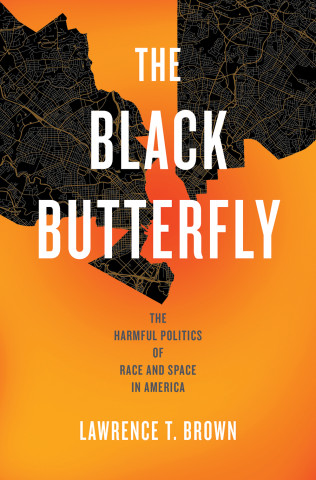
Reviews
A must-read book.
The Black Butterfly: The Harmful Politics of Race and Space in America is a complex book that will both intrigue and shock you. You will find yourself both grateful for his research and frustrated that it hasn't yet reached the right hands. It's not every day that a blueprint is created to directly address the issues of an urban city. This book is not only an eye-opener, but also a call to action, and a reminder of the work that needs to be done to heal a city with many open wounds.
A provocative book.
With clear and succinct writing, buttressed by rigorous research and copious examples, Dr. Brown casts an unflinching light on the problems Baltimore suffers as a hyper segregated city. Only when a critical mass of concerned citizens is made aware of the issues raised in this book, can change begin.
The book provides a helpful tool for public affairs educators seeking to incorporate discussions of race into the classroom and steps to connect public administration theories of performance, budgeting, and management into a hands-on analysis of cities. It details a process to learn both about spatial inequity and to implement the next steps toward the remediation of historical trauma.
An unsparing new geography of 'American apartheid'. [Brown] illuminates the process of 'spatial racism,' a force that has bound oppression up with the geography that African Americans occupy, and the public health effects of this historical trauma.
A must-read for anyone who wants to understand the political and economic forces behind Baltimore's bifurcated white and Black neighborhoods, and the modern-day segregation at the center of so much of the city's inequity.
Brown's methodology and evidence include policy analysis, social science research, and archival material. He successfully and strongly used these methodologies to confirm and authenticate his claims of racist practices against redlined Black neighborhoods and communities....The Black Butterfly uses easy-to-understand language to explain the complexities that exist in our society.
Describing the myriad policies that have created the crises of apartheid in Baltimore, this book analyzes the dilemma of African Americans living in hypersegregated cities while proposing new solutions. A highly original, excellently written work, The Black Butterfly will appeal to urban studies scholars, anyone involved in Black studies, and policymakers at many levels. I have the highest regard for Dr. Brown; his broad understanding of urban policy and its outcomes for the health of Baltimore, especially its Black population, is refreshing and important.
The Black Butterfly dissects American apartheid with unflinching precision and poignancy, weaving together fresh historical accounts with undiluted analysis of our present moment. Coupling diagnosis with prescription, this book provides readers with the necessary tools to dismantle spatial inequity and develop policies and practices for thriving Black neighborhoods and communities!
Dr. Brown makes visible the patterns and processes of inequality and systemic racism that have defined American urbanism. As we confront the role that race and space play in shaping our cities, people, and health, The Black Butterfly provides the grounding and better understanding needed to repair and reinvent our communities.
Book Details
Introduction to Racial Equity
Track 1. The Trump Card
Track 2. This Is America
Track 3. The "Negro Invasion"
Track 4. Ongoing Historical Trauma
Track 5. Black Neighborhood Destruction
Track 6. Make Black
Introduction to Racial Equity
Track 1. The Trump Card
Track 2. This Is America
Track 3. The "Negro Invasion"
Track 4. Ongoing Historical Trauma
Track 5. Black Neighborhood Destruction
Track 6. Make Black Neighborhoods Matter
Track 7. Healing the Black Butterfly
Track 8. Outro: Organize!
Album Credits
Appendixes
Notes
Index






